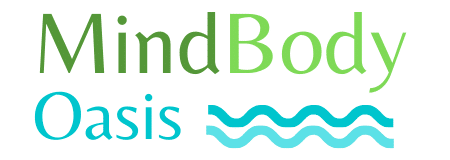Our attention turns this month to Aromatherapy as we celebrate Aromatherapy Awareness Week (10- 16 June).
The history of aromatherapy goes back millennia. The Chinese, Egyptians, Greek and Roman Empire all have records chronicling the use of aromatics. The Chinese burned incense to create balance and harmony. The Egyptians would also use incense made from aromatic herbs and spices and anointed their bodies with extracted oils to rejuvenate their skin. Aroma was infused into the cultures and was found to have not only medicinal and spiritual benefits, but also as a form of cosmetic use which grew to become what we now know as perfume.
The term “Aromatherapy” itself was first coined in the 20th Century by French chemist René-Maurice Gattefossé. His interest in the medicinal use of essential oils was discovered by accident when he burned his arm. He turned to the nearest liquid and placed his burnt arm in it. This liquid was lavender essential oil. On using it he discovered the plant’s incredible healing properties. The arm healed quickly without leaving any scar.
Aromatherapy or otherwise known as essential oil therapy works through the sense of smell (inhalation/diffusion into the olfactory system and lungs) and through the skin when applied in the form of oils, wax, cream or lotion. As a topical application, essential oils are absorbed into the bloodstream to improve the health of mind, body and spirit.
When combined with massage, aromatherapy helps to soothe away muscular tension and improve circulation. An aromatherapy treatment can be either deeply relaxing or uplifting, depending on the oils and massage techniques used by the therapist.
Aromatherapy is used by people for a variety of reasons. Some use it to help them manage or cope with specific physical, mental or emotional problems, while others use it as means of relaxation, or to help maintain good health and a sense of general wellbeing.
Aromatherapy massage and essential oils are commonly used in hospitals, hospices and other healthcare settings, to help support patients and their carers. The demand is increasing for complementary therapy in supportive and palliative care, as it provides symptom relief as well as emotional support to patients.
As a non-exhaustive list, aromatherapy can provide numerous benefits:
- manage pain
- improve sleep quality
- reduce stress, agitation, and anxiety
- lift mood
- soothe sore joints
- treat headaches and migraines
- ease discomforts of labour
- alleviate problems with menstruation and the menopause
- fight bacteria, virus, or fungus
- boost immunity
- improve digestion
- counter side effects of chemotherapy
- improve hospice and palliative care.
There are just under 100 different types of essential oils and some of the most popular are those that treat common problems or symptoms as follows:
- geranium, lavender, bergamot, neroli, mandarin for relaxation and helping with sleep disorders
- frankincense and myrrh for reducing inflammation and easing headaches
- lemon, ginger, spearmint, geranium, Himalayan cedarwood to counter nausea
- eucalyptus, Atlas cedarwood, frankincense, lavender to ease breathlessness and respiratory problems.
A key area of interest for aromatherapy is depression. Depression is becoming increasingly prevalent in our modern society with the rise of stress and a neglect of self-care. Almost everyone is affected to some degree, from symptoms that are mild to very severe.
The world of allopathic (conventional) medicine is gradually accepting that depression is no longer an illness resulting from a chemical imbalance in the brain, but rather a symptom of a general underlying imbalance. Not all depressions are equal either: each type has its particular characteristics, mood and emotional flavour and can be triggered by lifestyle, nutrition, mental and emotional causes, and other actual disorders (Treichler, 1952).
Essential oils can be very therapeutic in the treatment of depression because of their pathway of direct olfactory absorption affecting the limbic system. They have an impact on the neuroendocrine system and can therefore influence the peptidal functions of numerous cerebral centres, including those thought to be involved with depression.
If you are interested in finding out more or would like to discuss a course of aromatherapy massage or reflexology treatments to treat a particular condition (whether physical, mental or emotional), please email us at contact@mindbodyoasis.co.uk. We will handle your enquiry with care and with complete confidentiality. Treatments can be booked directly from our website too.
Follow us on Facebook www.facebook.com/mindbodyoasiscardiff to get our daily Aromatherapy facts and tips during Aromatherapy Awareness Week.
Sources: FHT, International Journal of Clinical Aromatherapy 2008 Vol 5, Issue 2; aromatherapy.com

